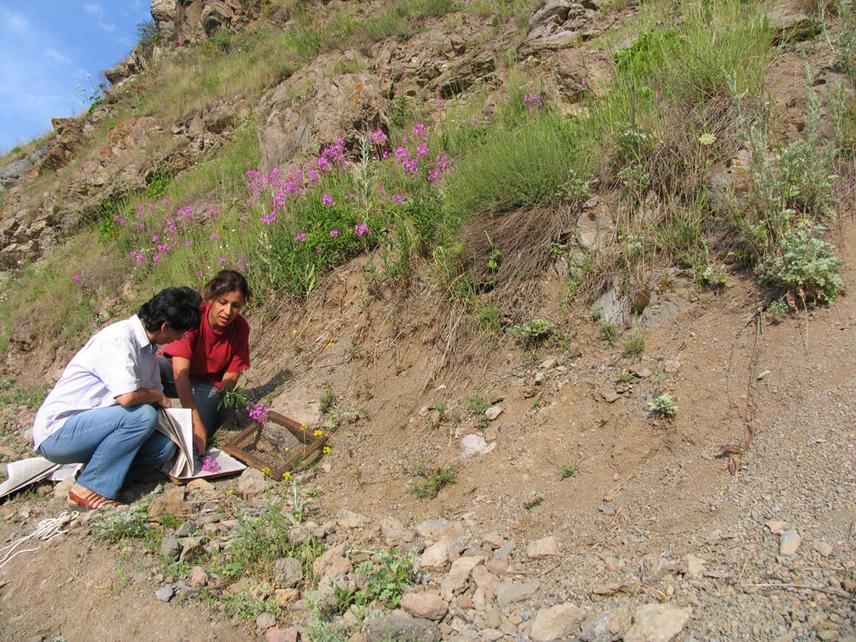Anna Asatryan
Other projects
28 Mar 2011
Identification of Priority Habitats of Armenia (Important Plant Areas, Criterion C) and Promotion of Their Conservation
28 Feb 2014
Identification of the Important Plant Areas of Armenia for Conservation of Plants and Habitats Diversity
This project involves botanical richness studies, which will be carried out for the first time in Armenia will help to identify the national floristic “hotspots”. The results will make a valuable scientific and practical basis for further management of the selected sites as well as creation of the National Network of Protected Areas in Armenia.

The Important Plant Areas (IPAs) are intended to be areas of great botanical importance for threatened species (criterion A), plant diversity (B) and habitats (C), that can be identified, protected and managed as sites. IPAs program was conceived in Europe in response to the increasing rate of loss of the irreplaceable wealth of Europe‘s wild plants and habitats, thus contributing to the implementation of Global Strategy for Plant Conservation (GSPC), Convention on Biological Diversity (CBD) and some other international strategies and conventions.
The initial studies on the IPAs in Armenia have been supported by the previous RSGs. 26 sites were listed in the priority sites list as well as the provisional listing of candidate sites has been developed. Because of data deficient and so some difficulties we met regarding criterion B it is intended to continue the further identification of the IPAs with the focus on floristic richness.
Botanical richness studies, which will be carried out for the first time in Armenia will help to identify the national floristic ‘hotspots‘. The results will make a valuable scientific and practical basis for further management of the selected sites as well as creation of the National Network of Protected Areas.
The major activities during the project will include fieldwork, herbarium and literature studies aimed to collect and collate all the relevant scientific data, preparation of the check-lists of indicator species for each habitat type, which are used in assessment of the floristic richness. An illustrated booklet will be published by the end of the project and will help to spread the results internationally as well as attract the attention of the appropriate governmental and other bodies. Seminars will be organized in four regions of Armenia. They will play educational role and involve individuals (representatives of governmental and non-governmental organisations), working on the conservation of local flora and will include joint field trips towards the IPAs of each particular area. This will help to establish links with participants and involve them in the further monitoring of the sites.
The work will be done in close collaboration within the Planta Europa Network and will promote the conservation measures in the country and support integration of Armenia within the European plant conservation movement.